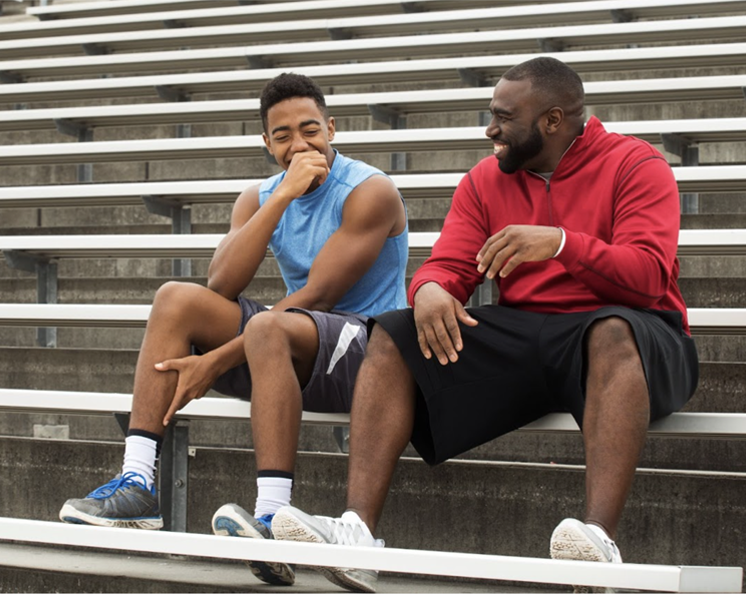Responding to the national youth mental health emergency

The headlines are everywhere: Anxiety and depression among teens is skyrocketing. If you’re a parent, or work with young people, you won’t be surprised to hear that the American Academy of Pediatrics declared a national emergency in child and adolescent mental health.
What can be done?
We can expand what help looks like and who it comes from by activating those who youth trust most, like a coach, a gaming friend, or an older peer. That’s at the heart of the unprecedented national response network we’re building to put mental health support just a click, call, or connection away from millions of teens and young adults – with a focus on boys and men of color.
It’s been a year since we shared the news that a collaboration between Futures Without Violence, Big Brothers Big Sisters of America, and the National Council for Mental Wellbeing had won the Harry’s Open Minds Initiative search for the next great idea to improve mental health in the United States. As we wrap up our first year, we wanted to let you know how much Team: Changing Minds, with Harry’s as our Founding Donor, has already accomplished.
We’re engaging the trusted peers and adults in young men’s lives who are active in pastimes they love (like video games, mentoring, and sports) to identify signs of mental health challenges, provide help, and offer other assistance and connections to young people.
Our goal is to transform how mental health support is delivered to young people in this country – helping to augment (but not replace) the critical role mental health providers play. Team: Changing Minds instructors are training more than 20,000 mental health responders who have the potential to reach hundreds of thousands of young people.
And our work has just begun. Team: Changing Minds will scale up over the next few years, helping many more people learn to recognize the signs of mental health challenges and connect young people to support earlier, before those challenges become crises. We aim to shorten the average 10+ year time period it takes most young people to access help for mental health challenges.
This work could not be more important at this moment when so many teens and young adults are hurting so much. So as Mental Health Awareness Month wraps up, we wanted to update you about the innovative work we’ve got underway.
Interested in getting involved in Team: Changing Minds? Let us know.




